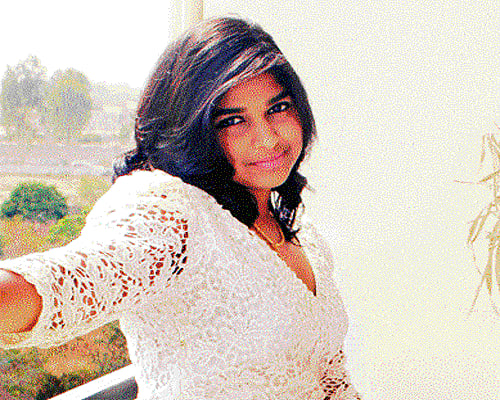MISOGYNY METRE With her first documentary, Scarred, Sarah Thomas is on a mission to implore our patriarchal society to face its ugly realities, discovers Anurag Thomson
“I just threw acid on her. There are people who have extra-marital affairs, but I'm not that kind of person. If I were, I wouldn't have done this to her. I understand my culture,” said Ranganath, in defence of his act of disfiguring his wife’s face with acid.
Ranganath was interviewed by Sarah Thomas, 21, from St Joseph's College of Arts and Science, Bangalore, for her documentary Scarred, through which, she plans to change this sort of mentality.
Initially meant to be a student project, the documentary has gone on to become only the second film venture on the delicate subject of acid attacks, and the first to have a nation-wide platform!
This young visual communications student first stumbled upon the idea last October, after noting that news of acid attacks are sensationalised and not given the right kind of attention.
While certain offences against women, like rape, are given a great deal of attention, cases of acid attacks are largely sidelined, despite the fact that they are no less traumatic for the victim.
Keeping this in mind, Sarah decided to use her passion for film-making, to fight for these women.
She began research on the issue through books and news reports in an attempt to gain more insight into the subject.
She contacted Campaign and Struggle Against Acid Attacks on Women (CSAAAW), the sole organisation fighting for acid attack survivors in Karnataka.
“It took me about two months to collect all the information I needed, before I could start filming,” she reminisces. Sarah was assisted in the venture by Usman Syed, her college mate, her lecturer Johnson Rajkumar, and two others from Delhi, without whom she claims the documentary would not have been what it is now.
She managed to complete Scarred, in January, after four months of filming in various parts of the country. She collected 24 hours of footage, which she then had to cut down to just thirty minutes. “This was very difficult for me.
I had trouble deciding what to exclude when everything shot was so touching and meaningful. Because Scarred is not a film, it is an experience,” she says, earnestly.
The film aims to give the viewer an insight into the lives of these women who have had their normal lives taken away from them.
It also highlights how our laws are not stringent enough to make sure that these acts are not repeated.
Despite the implementation of laws against the casual sale of acid, it is still easily available in the market.
What’s more, the punishment for a convicted offender is a mere ten years of imprisonment, which, in ‘certain circumstances’, can extend to life imprisonment. To Sarah, this feels like a mockery of justice.
“Cases of acid attacks are most common in patriarchal societies, where men feel a sense of superiority over women.
The idea is to destroy her beauty, her sense of independence, her very life. Such attacks are nothing more than men’s cowardly attempts at establishing their power over a woman whenever she transgresses the traditional gender roles that the society has bestowed upon her,” she maintains.
Acid attacks cut across all classes, social groups and caste. The sad reality is that, in certain cases, the victim was first checked for signs of infidelity; the police try to ensure that the women isn’t involved in any kind of malicious activities! One victim happened to own a beauty parlour.
The cops immediately searched her parlour to ensure that it wasn’t a brothel. Sarah’s documentary hopes to take down this sort of misogynistic views that the society still holds.
"These women are the strongest people I've ever met. Despite all that's happened to them, they are still able to look at the world with optimism and zest for life, something, which is very hard to hold on to, considering all that they have been through.
They are an epitome of strength and independence. So, to anyone who watches Scarred, all I would like to say is, this time, don't just lend your ears, lend your heart to the issue,” urges Sarah.

